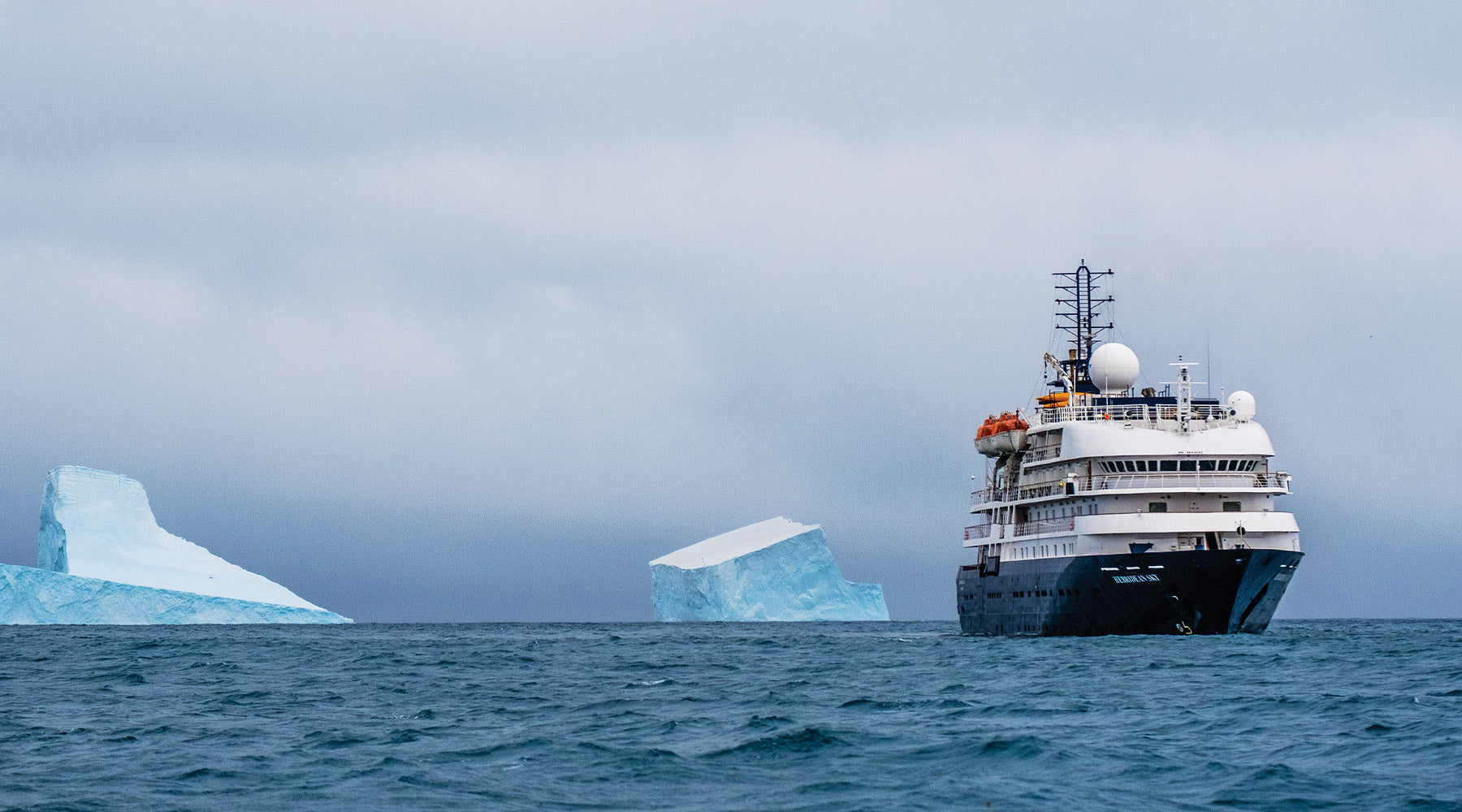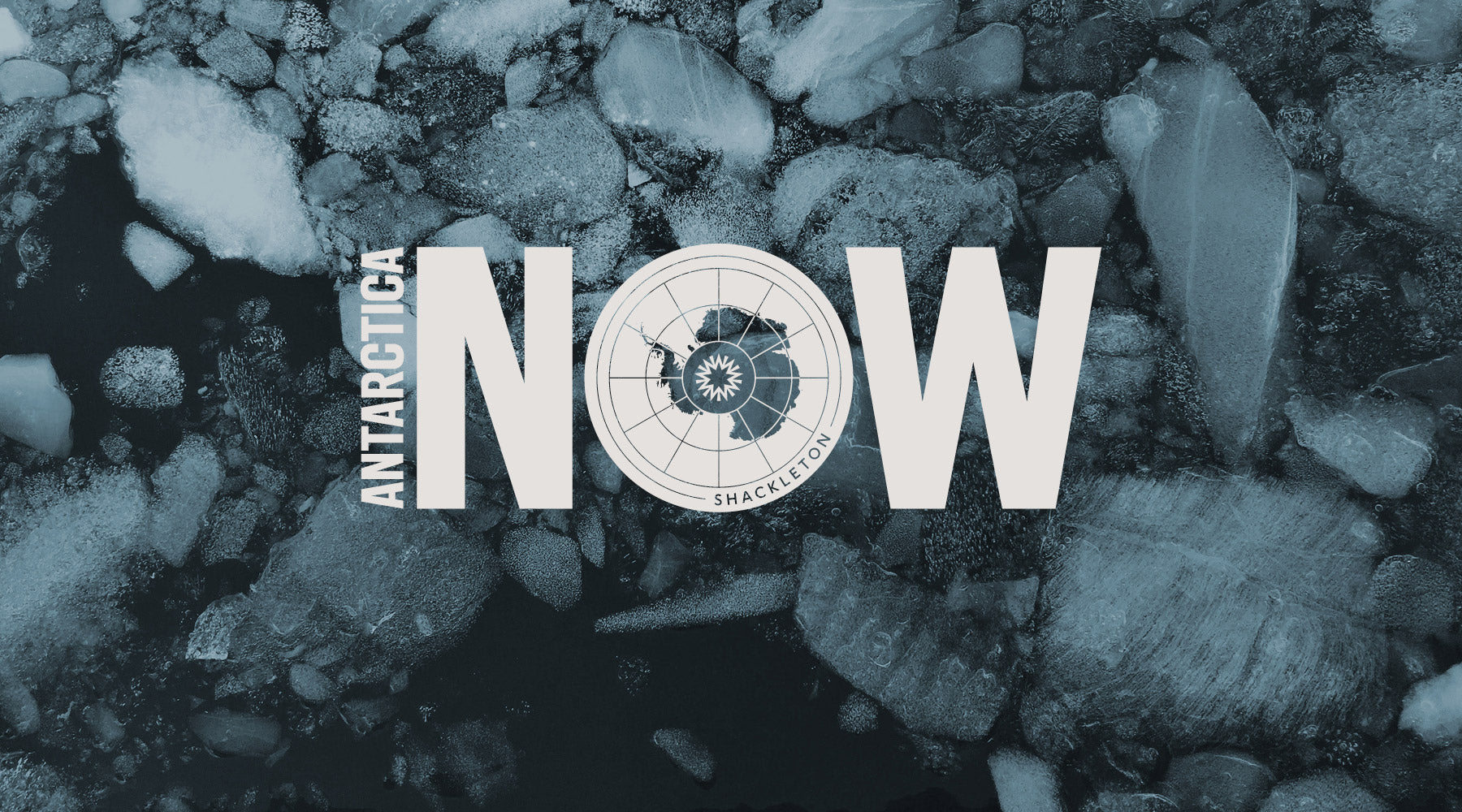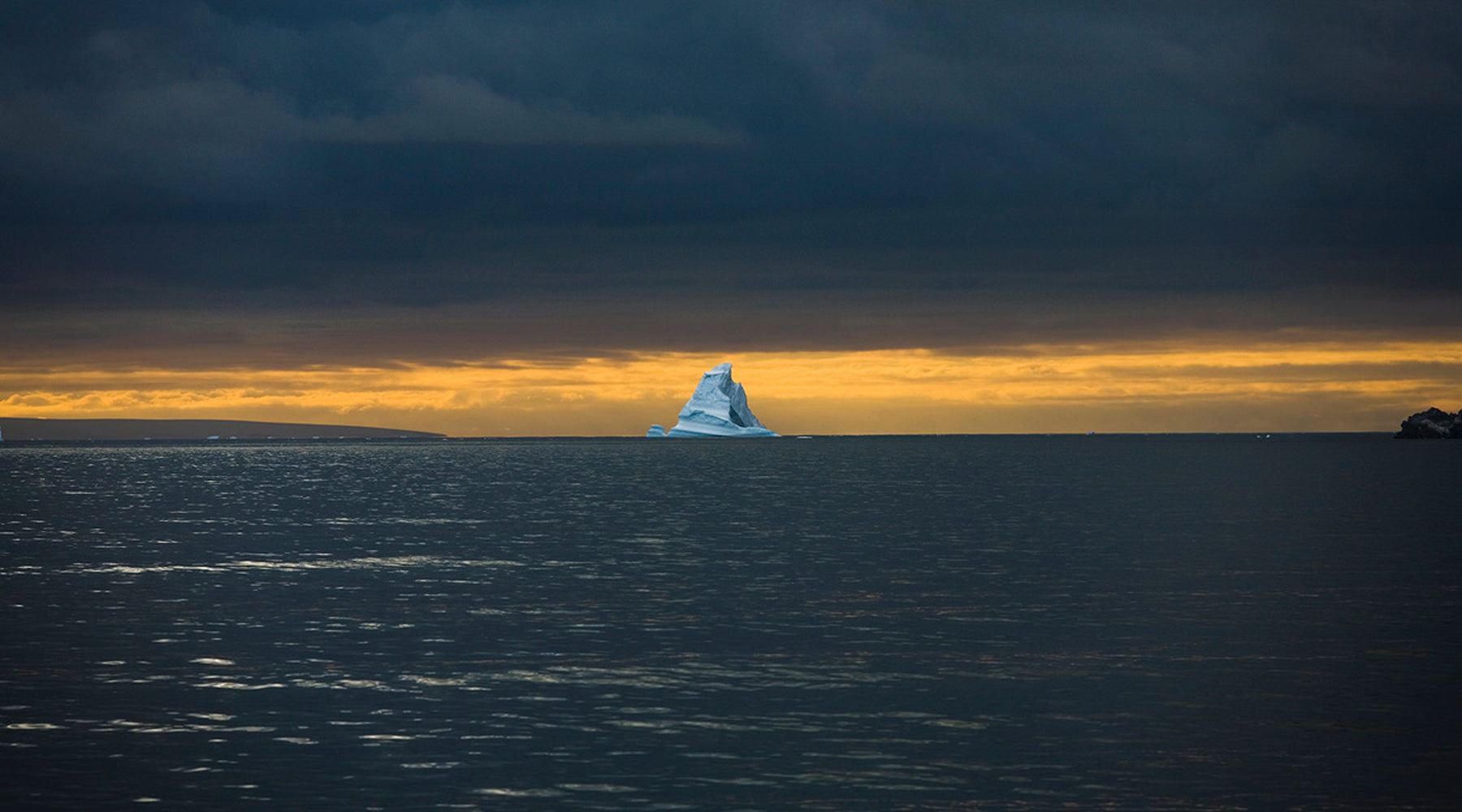
"Antarctica can't become a theme park"
Martin Brooks talks to Founder and President of Polar Latitudes, John McKeon, about the importance of responsible tourism.
“Antarctica is really one of the most unique places on the planet. While it’s quite resilient, it’s also quite fragile. We have to be super careful about that.” John McKeon is the Founder of Polar Latitudes, a company which since 2010 has taken people on small-ship expeditions to the Antarctic. Introducing new people to the Antarctic is a passion for him. Yet amid ongoing controversy about the impact tourism could have on the continent’s environment, he is vigilant about the razor-thin divide between the benefits and disadvantages of bringing people to this part of the world.
“It’s important that we don’t travel shame people,” he declares. “It always strikes me as a little strange that someone who is happy to tell you about their visit to Venice last year – which is being eaten alive by tourists – will then say that people shouldn’t go to Antarctica, because it’s too fragile. By taking people there, I like to think that we’re creating a force of people who will not only advocate for Antarctica but will also be outraged at things that run counter to its preservation. Nobody will fight for something they've never seen or experienced. So the more people we can expose to this unique place, in a responsible way, I think the greater the support we can build.”

He admits that his own first encounter with Antarctica came about by chance. “I was living in California, at the time working for a safari company. I was having lunch with a friend and he told me there was a polar expedition company looking for a president. He suggested I applied. I called them and they asked: ‘What are you doing tomorrow?’ I was expecting a normal day, but they said: ‘We’re having a meeting in London, why don’t you come?’ I did and they hired me.”
Interestingly, given the way his life has turned out, it wasn’t love at first sight. “When I went to the Antarctic for the first time I could see why it wasn’t an obvious destination. Then I went a second and then a third time. Gradually that sense of wonder and why people would want to do this became really clear. It turned out to be one of the great turning points in my life.”
Another turning point was when – after his company grew bigger through a series of takeovers – he realised that he didn’t want to be involved in an operation that was primarily thinking of profit. “Little by little they sucked the soul out. For me it’s always been a core principle to do things you’re proud of. So some of us decided to get a ship and do our own thing.”

The nature of tourism in the Antarctic has changed a lot since he first started going there. “Two decades ago, polar travel involved small, not very comfortable, clunky, older ships, with much smaller populations – between 40 and 50 passengers. The clientele was a bit more hardcore than they are today. They had a kind of ruggedness that meant that some kind of hardship was really part of the appeal. Now people want to be more comfortable, they want to have a little bit less rocking and rolling in Drake Passage. They want to have more or less the same experience but want to come back to a warm bed and a nice shower and perhaps to a sauna.”
In terms of the immediate impact that tourists have on the environment, patterns have shifted both for better and for worse. “When I first started going down there it was all about landings,” he says. “The really aggressive expedition leaders could squeeze three landings a day in and the ships would be really racing from point to point to get another landing. Those days are over, for lots of reasons. Site sensitivity being a principal one. Right now, the terminology is all about excursions. More and more activities are happening in the water.”

Yet some of these activities are proving a particular cause for concern. “We’re starting to see things like helicopters and submersibles starting to be introduced. There was a request at one point for some jet skis to be down there. I think once we start going down that path, it becomes more and more difficult to maintain an environmental presence.”
McKeon is also blunt about the impact on the environment made by the ships themselves. “People are rightly concerned about the carbon cost. 95% of all the visits are to the peninsula on ships which obviously burn fuel. So the entire industry is looking at how we make less of a carbon impact. It’s going to take probably a decade or so before there are any serious changes. Some hybrid ships are being developed now. We ourselves have looked at ways of minimising fuel burn, and we have in the last year been able to reduce it by about 20%.”

McKeon and his company – which prides itself on instilling a strong love and fascination for the Antarctic in its passengers – are part of an industry-wide launch of a systematic investigation into what the best way forward is. “Through IAATO (International Association of Antarctica Tour Operators) and all of the operators within IAATO, we are funding an independent survey about the impact of tourism that’s going to take a number of years,” he declares. “Having a year like this with no activity is obviously an interesting opportunity. We’re looking at potential impact and how one measures it. Then we ask how does one then try to mitigate or avoid it? We don’t actually know for sure whether there is a negative impact. I would argue that as an industry our prime ethos should be to go beyond leave no trace, leave no impact.”
At the core of his approach is the importance of respect – an appreciation not just of the long-term impact that visitors could have on the continent, but of the immediate danger it could pose to them if they fail to recognise it for what it is. “It’s a conundrum in many ways,” he concludes. “Right now I’m looking at a book one of our passengers sent me about her voyage. The cover of this book is pristinely beautiful. Yet I know from having been there dozens of times that it can change in a second and it can become wild and deadly. It’s the raw, natural beauty that makes this place so special. Whatever we do, we can’t allow it to become a theme park.”
Shackleton partnered with Polar Latitudes in 2019 to create The Shackleton Legacy Jacket.



